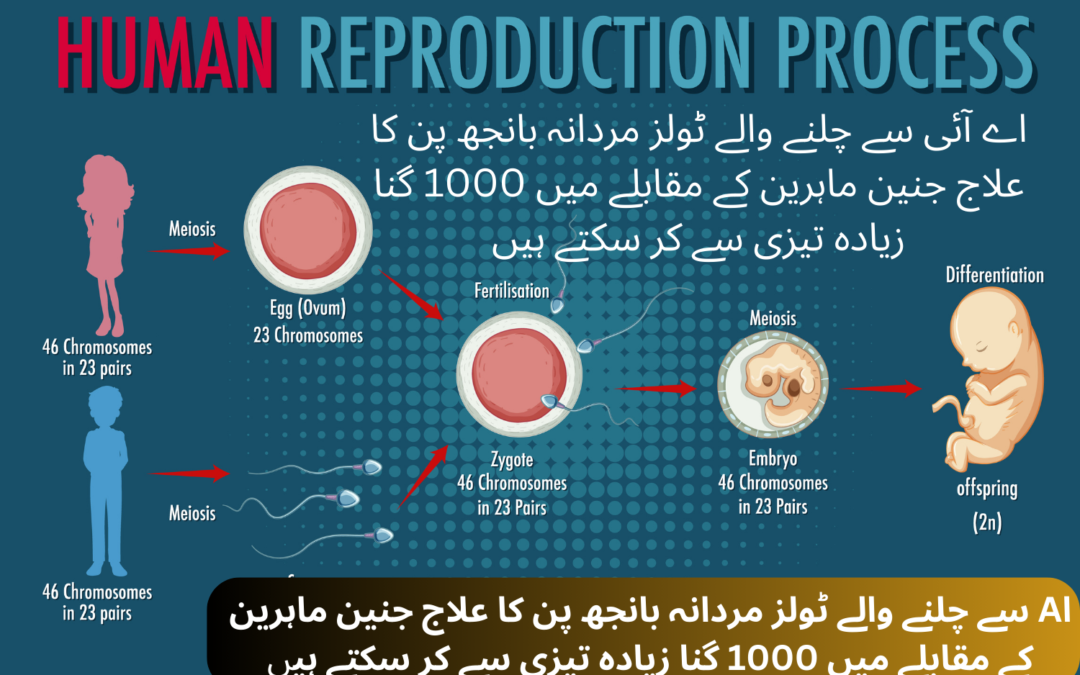
AI-powered tools can help treat male infertility 1000x faster than embryologists.
Introduction
Male infertility is a pressing issue that affects countless couples worldwide. For many, the path to parenthood is fraught with challenges, often requiring extensive fertility treatments. However, the emergence of AI-powered tools in the field of reproductive medicine has given new hope to couples struggling with male infertility. In this article, we will explore how AI-powered tools can potentially treat male infertility at an astonishing speed, surpassing the capabilities of even the most experienced embryologists.
The Burden of Male Infertility
Male infertility is a condition that arises when a man’s reproductive system faces challenges in producing healthy, motile sperm or when there are blockages that hinder sperm delivery. It is a common issue, affecting approximately 7% of men globally. For couples trying to conceive, male infertility can be emotionally and physically taxing.
The Promise of AI in Healthcare
Artificial Intelligence (AI) has made significant strides in healthcare across various domains, and reproductive medicine is no exception. AI’s ability to process vast amounts of data and perform complex tasks at incredible speeds has opened up new possibilities for infertility treatment.
AI-Powered Tools: A Game Changer
AI-powered tools are being developed to assist and augment the work of fertility specialists and embryologists. These tools encompass a range of applications:
1. Sperm Analysis
AI can analyze sperm samples with unparalleled speed and precision. Traditional manual analysis by embryologists is time-consuming and subject to human error. AI algorithms can evaluate sperm motility, morphology, and concentration in a matter of seconds, providing invaluable insights for treatment decisions.
2. Embryo Selection
In in vitro fertilization (IVF) procedures, selecting the healthiest embryos is critical for success. AI algorithms can assess embryos and predict which ones are most likely to result in a successful pregnancy. This process, which could take embryologists hours, can be accomplished in a fraction of the time with AI.
3. Personalized Treatment Plans
AI can create personalized treatment plans by analyzing patient data, including medical history, genetics, and lifestyle factors. These tailored plans optimize the chances of success, reducing the need for trial-and-error approaches.
AI vs. Embryologists: The Speed Factor
The most remarkable aspect of AI-powered tools is their speed. They can process and analyze data up to 1000 times faster than a human embryologist. This acceleration not only reduces the waiting time for couples but also minimizes the stress and uncertainty associated with infertility treatments.
Ethical Considerations and Regulatory Oversight
While the potential of AI in male infertility treatment is promising, it’s essential to consider ethical and regulatory aspects. Ensuring patient privacy, maintaining data security, and adhering to medical guidelines are paramount in the development and deployment of AI-powered tools.
The Future of Male Infertility Treatment
AI-powered tools have the potential to revolutionize male infertility treatment, offering hope to couples who have long struggled to conceive. As AI continues to evolve and researchers refine these tools, the future looks promising for those on the path to parenthood.
Conclusion
AI-powered tools represent a beacon of hope for individuals and couples facing the challenges of male infertility. Their ability to expedite the treatment process, provide accurate analysis, and offer personalized care is a testament to the incredible advancements in the field of reproductive medicine. While AI can’t replace the expertise and compassion of healthcare professionals, it can certainly complement their efforts, ultimately bringing the dream of parenthood within closer reach for many. As research in this area continues to advance, the future of male infertility treatment is brighter than ever.

